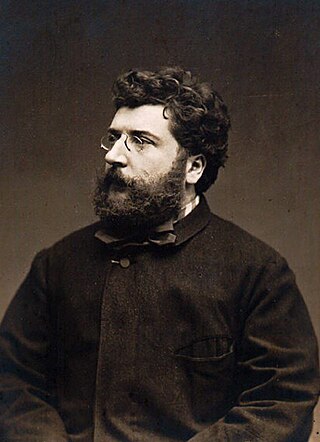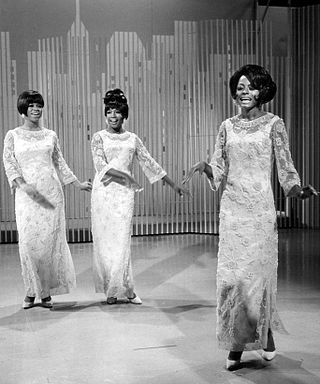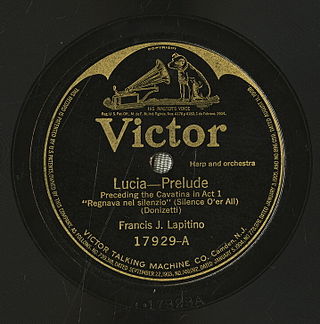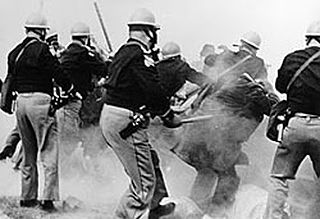This is a list of members of the South Australian House of Assembly from 1965 to 1968, as elected at the 1965 state election:
This is a list of members of the South Australian House of Assembly from 1965 to 1968, as elected at the 1965 state election:
The terms foobar, foo, bar, baz, and others are used as metasyntactic variables and placeholder names in computer programming or computer-related documentation. They have been used to name entities such as variables, functions, and commands whose exact identity is unimportant and serve only to demonstrate a concept.

Malcolm X was an American Muslim minister and human rights activist who was a prominent figure during the civil rights movement. A spokesman for the Nation of Islam until 1964, he was a vocal advocate for Black empowerment and the promotion of Islam within the Black community. A posthumous autobiography, on which he collaborated with Alex Haley, was published in 1965.

Carmen is an opera in four acts by the French composer Georges Bizet. The libretto was written by Henri Meilhac and Ludovic Halévy, based on the novella of the same title by Prosper Mérimée. The opera was first performed by the Opéra-Comique in Paris on 3 March 1875, where its breaking of conventions shocked and scandalised its first audiences.

Lyndon Baines Johnson, often referred to by his initials LBJ, was an American politician who served as the 36th president of the United States from 1963 to 1969. He previously served as the 37th vice president from 1961 to 1963 under President John F. Kennedy, and was sworn in shortly after Kennedy's assassination. A Democrat from Texas, Johnson also served as a U.S. representative, U.S. senator and the Senate's majority leader. He holds the distinction of being one of the few presidents who served in all elected offices at the federal level.

The Voting Rights Act of 1965 is a landmark piece of federal legislation in the United States that prohibits racial discrimination in voting. It was signed into law by President Lyndon B. Johnson during the height of the civil rights movement on August 6, 1965, and Congress later amended the Act five times to expand its protections. Designed to enforce the voting rights guaranteed by the Fourteenth and Fifteenth Amendments to the United States Constitution, the Act sought to secure the right to vote for racial minorities throughout the country, especially in the South. According to the U.S. Department of Justice, the Act is considered to be the most effective piece of federal civil rights legislation ever enacted in the country. It is also "one of the most far-reaching pieces of civil rights legislation in U.S. history."

Georges Bizet was a French composer of the Romantic era. Best known for his operas in a career cut short by his early death, Bizet achieved few successes before his final work, Carmen, which has become one of the most popular and frequently performed works in the entire opera repertoire.

The Animals are an English rock band, formed in Newcastle upon Tyne in the early 1960s. The band moved to London upon finding fame in 1964. The Animals were known for their gritty, bluesy sound and deep-voiced frontman Eric Burdon, as exemplified by their signature song and transatlantic number-one hit single "The House of the Rising Sun" as well as by hits such as "We Gotta Get Out of This Place", "It's My Life", "Don't Bring Me Down", "I'm Crying", "See See Rider" and "Don't Let Me Be Misunderstood." The band balanced tough, rock-edged pop singles against rhythm-and-blues-oriented album material and were part of the British Invasion of the US.

Doctor Zhivago is a 1965 epic historical romance film directed by David Lean with a screenplay by Robert Bolt, based on the 1957 novel by Boris Pasternak. The story is set in Russia during World War I and the Russian Civil War. The film stars Omar Sharif in the title role as Yuri Zhivago, a married physician and poet whose life is altered by the Russian Revolution and subsequent civil war, and Julie Christie as his love interest Lara Antipova. Geraldine Chaplin, Tom Courtenay, Rod Steiger, Alec Guinness, Ralph Richardson, Siobhán McKenna, and Rita Tushingham play supporting roles.

The Byrds were an American rock band formed in Los Angeles, California, in 1964. The band underwent multiple lineup changes throughout its existence, with frontman Roger McGuinn remaining the sole consistent member. Although their time as one of the most popular groups in the world only lasted for a short period in the mid-1960s, the Byrds are today considered by critics to be among the most influential rock acts of their era. Their signature blend of clear harmony singing and McGuinn's jangly 12-string Rickenbacker guitar was "absorbed into the vocabulary of rock" and has continued to be influential.

The Supremes was an American girl group and a premier act of Motown Records during the 1960s. Founded as the Primettes in Detroit, Michigan, in 1959, the Supremes were the most commercially successful of Motown's acts and the most successful American vocal band, with 12 number-one singles on the Billboard Hot 100. Most of these hits were written and produced by Motown's main songwriting and production team, Holland–Dozier–Holland. It is said that their breakthrough made it possible for future African-American R&B and soul musicians to find mainstream success. Billboard ranked the Supremes as the 16th greatest Hot 100 artist of all time.

The A-side and B-side are the two sides of phonograph records and cassettes; these terms have often been printed on the labels of two-sided music recordings. The A-side usually features a recording that its artist, producer, or record company intends to be the initial focus of promotional efforts and radio airplay and hopefully become a hit record. The B-side is a secondary recording that typically receives less attention, although some B-sides have been as successful as, or more so than, their A-sides.

The Immigration and Nationality Act of 1965, also known as the Hart–Celler Act and more recently as the 1965 Immigration Act, is a federal law passed by the 89th United States Congress and signed into law by President Lyndon B. Johnson. The law abolished the National Origins Formula, which had been the basis of U.S. immigration policy since the 1920s. The act removed de facto discrimination against Southern and Eastern Europeans and Asians, as well as other non-Western and Northern European ethnic groups from American immigration policy.

The Indo-Pakistani War of 1965 or the Second Kashmir War was a culmination of skirmishes that took place between April 1965 and September 1965 between Pakistan and India. The conflict began following Pakistan's Operation Gibraltar, which was designed to infiltrate forces into Jammu and Kashmir to precipitate an insurgency against Indian rule, It became the immediate cause of the war. The seventeen-day war caused thousands of casualties on both sides and witnessed the largest engagement of armored vehicles and the largest tank battle since World War II. Hostilities between the two countries ended after a ceasefire was declared through UNSC Resolution 211 following a diplomatic intervention by the Soviet Union and the United States, and the subsequent issuance of the Tashkent Declaration. Much of the war was fought by the countries' land forces in Kashmir and along the border between India and Pakistan. This war saw the largest amassing of troops in Kashmir since the Partition of India in 1947, a number that was overshadowed only during the 2001–2002 military standoff between India and Pakistan. Most of the battles were fought by opposing infantry and armoured units, with substantial backing from air forces, and naval operations.

The Selma to Montgomery marches were three protest marches, held in 1965, along the 54-mile (87 km) highway from Selma, Alabama, to the state capital of Montgomery. The marches were organized by nonviolent activists to demonstrate the desire of African-American citizens to exercise their constitutional right to vote, in defiance of segregationist repression; they were part of a broader voting rights movement underway in Selma and throughout the American South. By highlighting racial injustice, they contributed to passage that year of the Voting Rights Act, a landmark federal achievement of the civil rights movement.

The 89th United States Congress was a meeting of the legislative branch of the United States federal government, composed of the United States Senate and the United States House of Representatives. It met in Washington, D.C., from January 3, 1965, to January 3, 1967, during the second and third years of Lyndon B. Johnson's presidency. The apportionment of seats in the House of Representatives was based on the 1960 United States census.

The 1965–66 season of the European Cup football club tournament was won by Real Madrid, winners of the first five European Cups from 1956 to 1960, for the sixth time in a close final against Partizan. Real Madrid eliminated title-holders Internazionale in the semi-finals.
The 1965 Major League Baseball Draft is the first year in which a draft took place for Major League Baseball. It was held on June 8–9 in New York City.

Large-scale killings and civil unrest primarily targeting members of the Communist Party (PKI) were carried out in Indonesia from 1965 to 1966. Other affected groups included communist sympathisers, Gerwani women, ethnic Javanese Abangan, ethnic Chinese, atheists, alleged "unbelievers", and alleged leftists. It is estimated that between 500,000 to 1,000,000 people were killed during the main period of violence from October 1965 to March 1966. The atrocities, sometimes described as a genocide or politicide, were instigated by the Indonesian Army under Suharto. Research and declassified documents demonstrate the Indonesian authorities received support from foreign countries such as the United States and the United Kingdom.

Ganesha, also known as Ganapati,Vinayaka, and Pillaiyar, is one of the best-known and most worshipped deities in the Hindu pantheon and is the Supreme God in Ganapatya sect. His image is found throughout India. Hindu denominations worship him regardless of affiliations. Devotion to Ganesha is widely diffused and extends to Jains and Buddhists and includes Nepal, Bangladesh, Sri Lanka, Indonesia, Thailand, Myanmar, China, and Japan and in countries with large ethnic Hindus populations including United States, Fiji, Guyana, Mauritius, and Trinidad and Tobago.
This is a list of electoral district results for the 1965 New South Wales state election.